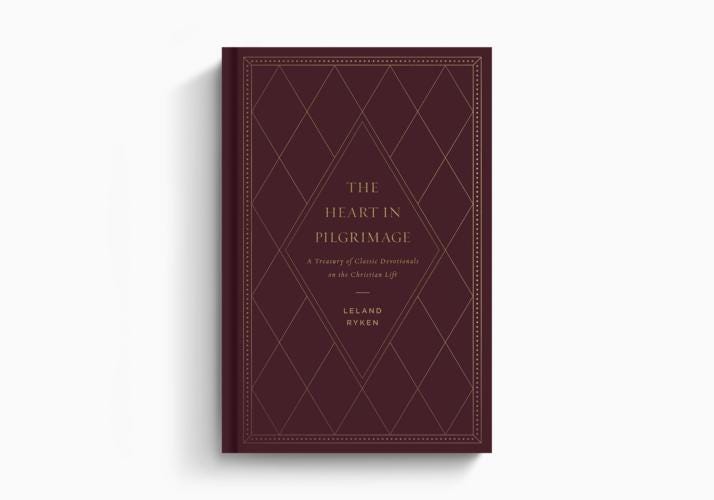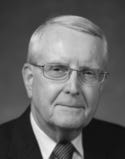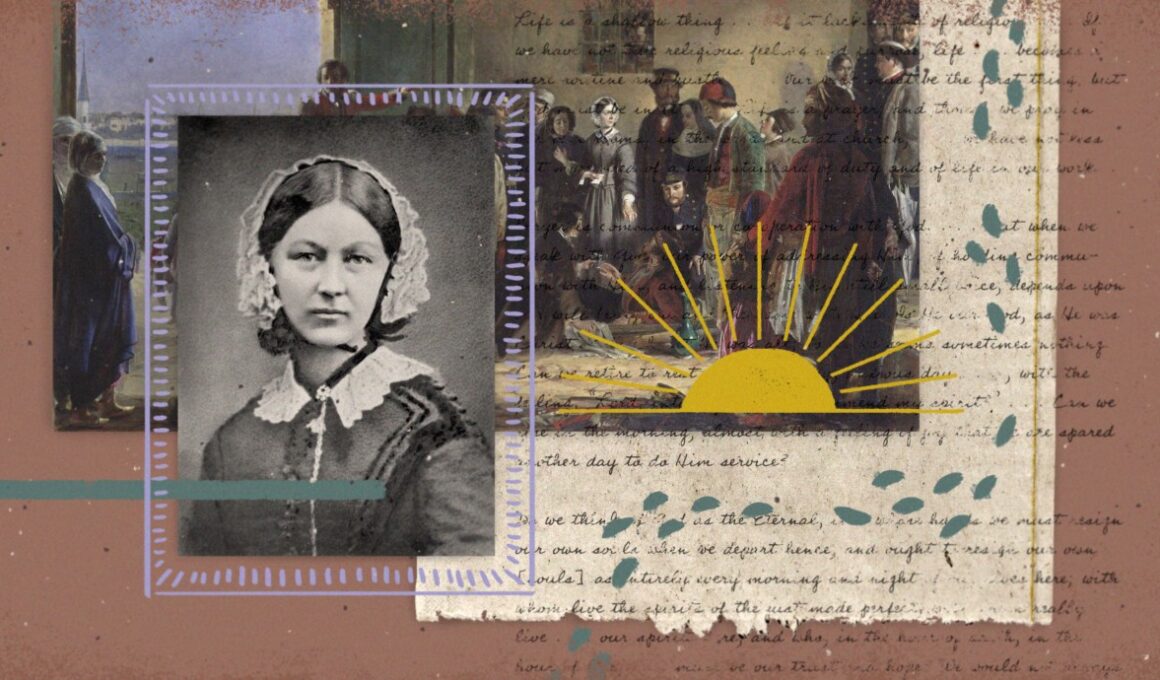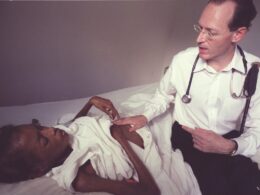Crossway
by: Leland Ryken
December 09, 2022
Exhortation to Christlike Living
Life is a shallow thing . . . if it lacks depth of religion. . . . If we have not true religious feeling and purpose, life . . . becomes a mere routine and bustle. . . .
Our work must be the first thing, but God must be in it. . . .
Life is a prayer; and though we pray in our own rooms, in the wards and at church, . . . we have not less but more need of a high standard of duty and of life in our [work]. . . .
Life is a prayer; and though we pray in our own rooms, in the wards and at church, . . . we have not less but more need of a high standard of duty and of life in our [work]. . . .
Prayer is communion or co-operation with God. . . .
But when we speak with God, our power of addressing Him, of holding communion with Him, and listening to His still small voice, depends upon our will being one and the same with His.
But when we speak with God, our power of addressing Him, of holding communion with Him, and listening to His still small voice, depends upon our will being one and the same with His.
Is He our God, as He was Christ’s? To Christ He was all; to us He seems sometimes nothing.
Can we retire to rest after our busy, anxious day . . . , with the feeling, “Lord, into Thy hands I commend my spirit?” . . .
Can we rise in the morning, almost with a feeling of joy that we are spared another day to do Him service? . . .
Can we retire to rest after our busy, anxious day . . . , with the feeling, “Lord, into Thy hands I commend my spirit?” . . .
Can we rise in the morning, almost with a feeling of joy that we are spared another day to do Him service? . . .

BOX: The Heart in Pilgrimage
Literary expert Leland Ryken introduces 50 of the best devotionals from church history, each with an analysis and a corresponding scripture passage to help readers understand and appreciate the literary beauty and spiritual truths they contain.
Authority and Encouragement toward the Higher Self
Florence Nightingale (1820–1910) is known as the mother of modern nursing.
She was a lifelong reader of the Bible, a member of the Church of England, and someone influenced by Methodism.
Although born into the privileged class of British society, she felt called by God at the age of seventeen to a life of service.
At first she did not know what that service was, but it turned out to be nursing, which at the time was considered a lower class profession.
Her stance toward her profession is summed up in a statement she once made to an assembly of nurses: “Christ is the author of our profession.” 2
Her stance toward her profession is summed up in a statement she once made to an assembly of nurses: “Christ is the author of our profession.”
The example of Florence Nightingale is itself an inspiration and real-life, applied devotional.
She turned down a life of privilege and a proposal of marriage in order to serve the suffering.
For thirty years she was afflicted by illnesses that largely confined her to her room. Despite this, she continued to make astounding contributions to nursing in England and around the world.
For thirty years she was afflicted by illnesses that largely confined her to her room. Despite this, she continued to make astounding contributions to nursing in England and around the world.
The spiritual side of Florence Nightingale is wonderfully enshrined in a collection of annual addresses composed for “probationers” (nursing students) at the nursing school in London that she founded.
These addresses were read to the nurses by the chairman of the Nightingale Fund.
Three traits in particular make the addresses inspiring and edifying.
One is the parental stance of Nightingale toward her nursing students, and beyond them to us, her readers.
As a spiritual mother, she is both kindly and firm. Regardless of our age, we sense that the author of the words is our spiritual mentor who has earned the right to speak to us with authority.
Second, Nightingale employs a rhetoric of exhortation, which displays two complementary sides.
On one side, we are continuously aware of being prodded to be on our guard against complacency in our spiritual lives and vocations in the world.
Third, this note of warning is balanced by encouragement to reach for a high level of attainment in our spiritual lives.
There is a tone of buoyant idealism in Nightingale’s words. The effect is similar to that of the New Testament epistles, where we are continuously called to our higher selves.
Nightingale’s goal is totally clear: she wants us to be all that we can be in our spiritual lives, which for her is to be Christlike in our thoughts and actions. Her words are a spiritual pep talk.
Nightingale’s goal is totally clear: she wants us to be all that we can be in our spiritual lives, which for her is to be Christlike in our thoughts and actions. Her words are a spiritual pep talk.
Florence Nightingale’s life and her exhortation to Christlike living are encapsulated in 1 John 2:6:
“Whoever says he abides in [Christ]
ought to walk in the same way in which he walked.”
Notes:
- The excerpts from Florence Nightingale to Her Nurses are taken from the first published edition (London: Macmillan and Company, 1914). The subtitle explains the nature of the book: A Selection of Miss Nightingale’s Addresses to Probationers and Nurses of the Nightingale School at St. Thomas’s Hospital.
- Multiple internet sites quote Nightingale’s statement that “Christ is the author of our profession,” including this one: https://opentheword.org.
This article is adapted from The Heart in Pilgrimage: A Treasury of Classic Devotionals on the Christian Life by Leland Ryken.
About the author
Leland Ryken (PhD, University of Oregon) served as professor of English at Wheaton College for nearly fifty years.
He served as literary stylist for the English Standard Version Bible and has authored or edited over sixty books, including The Word of God in English and A Complete Handbook of Literary Forms in the Bible.

Originally published at https://www.crossway.org on December 9, 2022.












